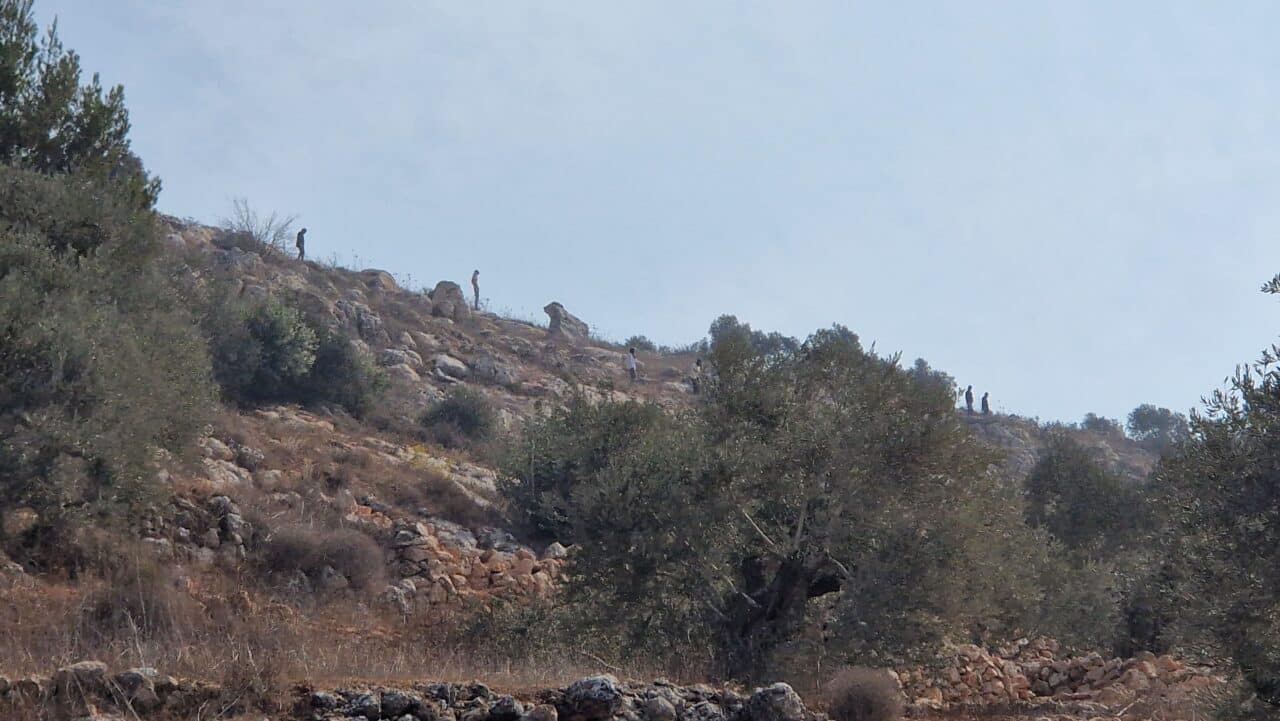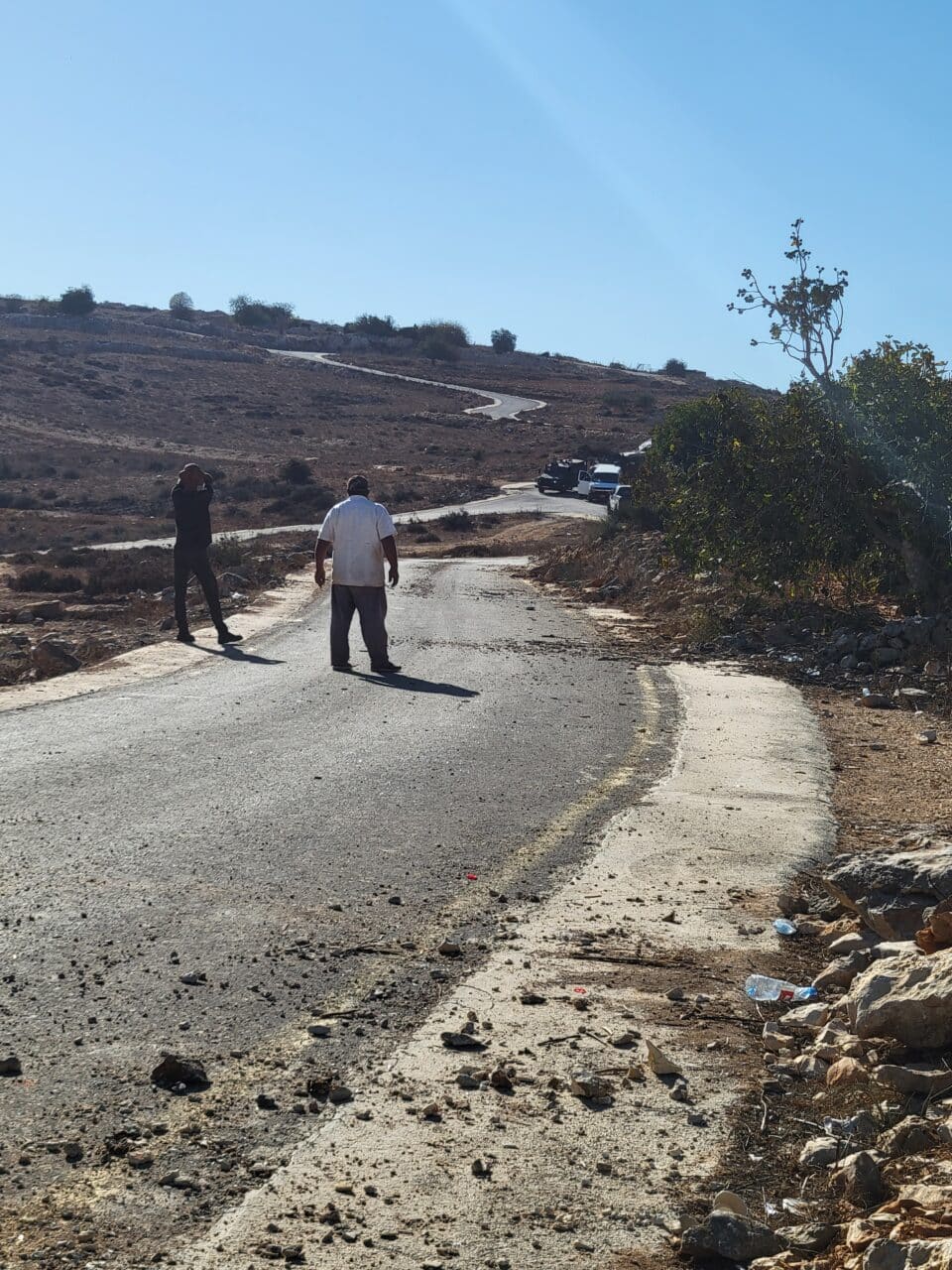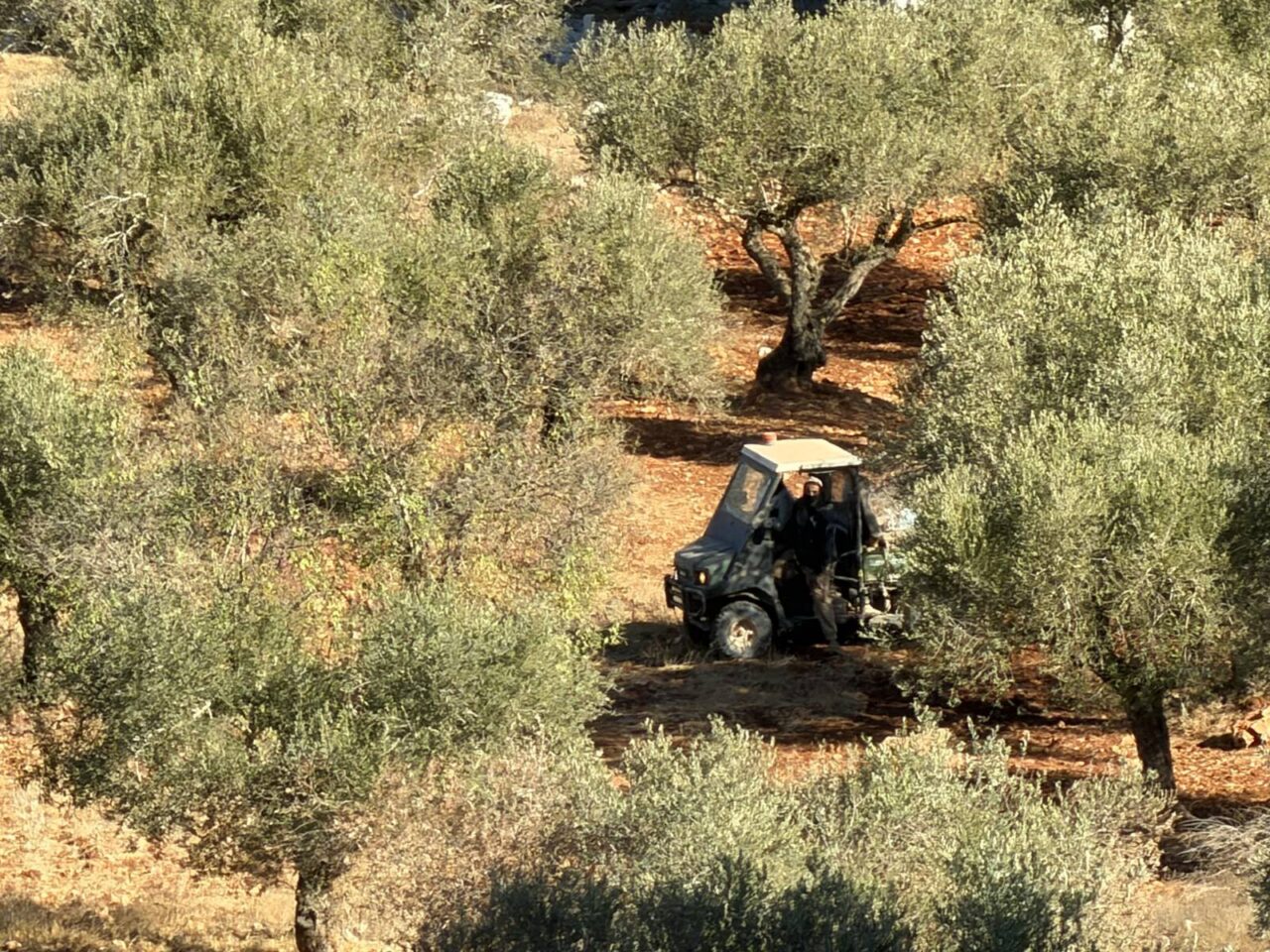Tag: Olive harvest
-
For immediate release – Olive Harvest: Settlers Injure Palestinian Farmers, Journalists and Medics and Solidarity Activists in Beita
Media enquiries: palreports@gmail.com On Saturday, November 8, Masked Israeli settlers armed with clubs attacked Palestinian farmers and solidarity activists, with many hospitalized after, in the Jabal Qamas area of Beita, south of Nablus, near the recently established Mevaser Shalom outpost, built on Beita’s confiscated land. After a few hours of successful olive harvest, a group…
-
Report from Zaytoun 2025: October 27
Qarawa Bani Hassan, West SalfeetSoldiers and settlement security detained farmers on the ground with their hands tied behind their backs while they were in their lands harvesting their olives. Sinjil, East RamallahIsraelis harassed harvesters in the Jabl a-Tal area, south of the village. Soldiers who later arrived on location announced that land owners have only…
-
Olive Harvest: Settlers Assault Farmer and Prevent Harvest in Turmus Ayya
October 26 – Turmus Ayya Local farmers in Turmus Ayya today requested the presence of solidarity activists in a small olive grove, situated approximately half a kilometer away from an illegal outpost, known to house the head of local settler groups. Within 20 minutes of the begining of harvest, four settlers were spotted heading towards…



